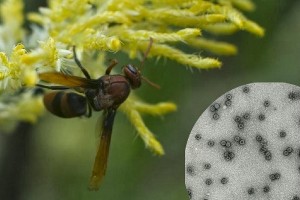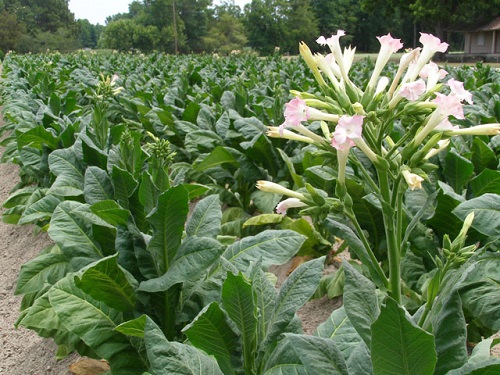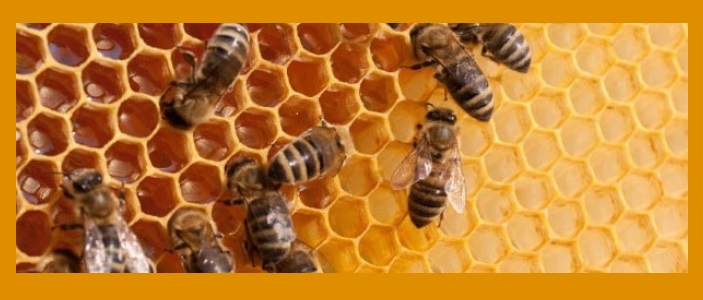On July 1, 2015, Ontario was the first jurisdiction in North America to protect bees and other pollinators through new rules to reduce the number of acres planted with neonicotinoid-treated corn and soybean seeds by 80 per cent.

To support this goal, new requirements were put in place for the sale and use of neonicotinoid-treated corn and soybean seed that will help ensure treated seed is only used when there is evidence of a pest problem. Reducing neonicotinoid use in these two crops presents the greatest potential to reduce pollinator exposure to the neurotoxic insecticide.
Pollinators, including bees, birds and butterflies, play a crucial role in agriculture and our ecosystem. The level of over-winter losses considered to be acceptable and sustainable by most apiculturists is 15 per cent.
The new rules are one part of Ontario’s strategy to improve pollinator health. The province will also develop a pollinator health action plan in consultation with the public and experts to address other stressors that affect pollinators.
Ensuring a strong and healthy agricultural sector is part of the government’s economic plan for Ontario. The four part plan is building Ontario up by investing in people’s talents and skills, making the largest investment in public infrastructure in Ontario’s history, creating a dynamic, innovative environment where business thrives, and building a secure retirement savings plan.

QUOTES
“Much of the food we eat and the vibrancy of Ontario’s natural habitats depend on a healthy pollinator population. Our government is taking necessary action to protect these vitally important species and the ecosystems they support from the effects of neurotoxic neonicotinoids.”
— Glen Murray, Minister of the Environment and Climate Change
“Farmers are environmental stewards of their land and this regulation will enable our province’s farmers to strengthen their approach to protecting their crops. To have a significant impact on improving pollinator health, over the coming months, we collectively need to focus on three additional contributors: habitat and nutrition, disease and pests as well as weather and climate change.”
— Jeff Leal, Minister of Agriculture, Food and Rural Affairs
“Farmers care about the health of pollinators. That’s why the Ontario Federation of Agriculture (OFA) has worked closely with the Government of Ontario to have these new regulatory requirements work for the province’s farmers. The OFA supports the need for a complete pollinator policy. The OFA will continue to work with the government toward the successful implementation of this regulation, keeping the concerns of farmers top of mind as part of a pollinator strategy.”
- Don McCabe, President, Ontario Federation of Agriculture
“Friends of the Earth is pleased and impressed by Ontario’s leadership in finalizing this first permanent reduction in the use of neonicotinoids in Canada. With its new pesticide regulation, Ontario is delivering important benefits for nature including honey bees, native bees and other vulnerable species.”
- Beatrice Olivastri, Chief Executive Officer, Friends of the Earth Canada
“Doctors are delighted Ontario will be North America’s first jurisdiction to introduce regulatory restrictions on bee-killing neonic pesticides. Assuming Ontario hits its target of an 80% reduction by 2017, this will be the most important pollinator-protection policy on the continent — and a major contributor to food security.”
- Gideon Forman, Executive Director, Canadian Association of Physicians for the Environment
QUICK FACTS
- There are more than 400 pollinator species in Ontario and bees are the most common pollinator.
- Bees and other pollinators are responsible for pollinating roughly 13 per cent of agricultural crops in Ontario (crops worth about $897 million), and support $26 million annually in honey production.
- The province conducted a comprehensive, two-stage consultation process with the public and stakeholders to develop its neonicotinoid regulatory requirements.
- Neonicotinoid-treated seeds are widely used in agriculture. Close to 100 per cent of corn seed and 60 per cent of soybean seed sold in the province is treated with neonicotinoid insecticides.
LEARN MORE
Learn more about the new regulatory requirements to protect pollinators
Learn about the importance of protecting bees and other pollinators
Supplemental- New York Times: Bee death may be linked to Tobacco ringspot virus


